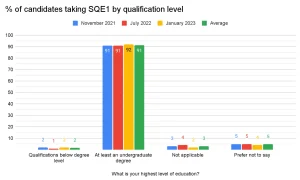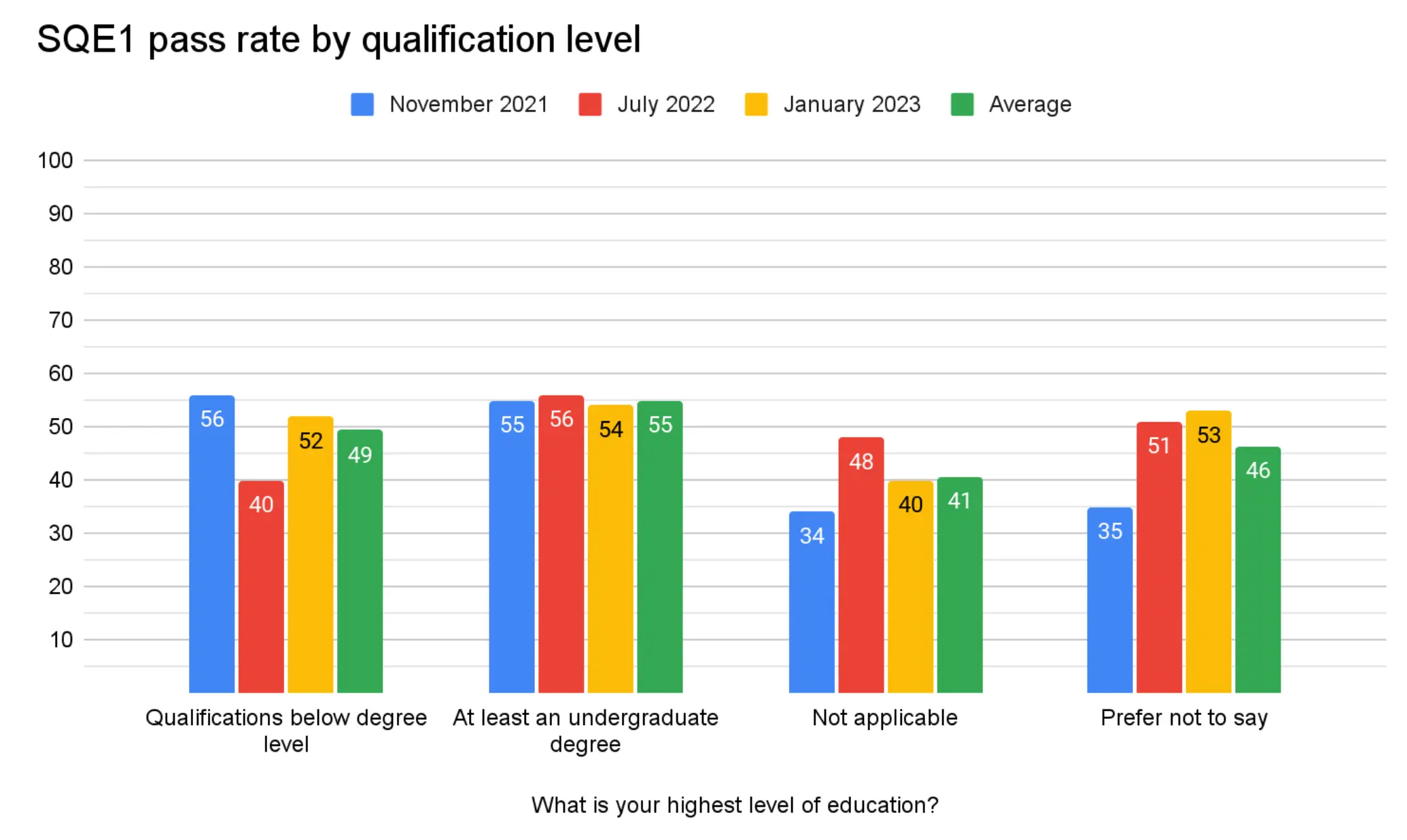To qualify as a lawyer in England and Wales, you need to have a degree in any subject, or show that you have a qualification or experience equivalent to a degree. However, you do not need to have a degree to take the SQE1 assessments – you can get a degree after taking it. In this video, we are looking at the number of candidates who have taken SQE1 with and without a degree, how they did.
If you look at this first chart, you can see that the vast majority of SQE1 candidates have been graduates, on average over 90%. About 2% have a qualification below degree level. In terms of the numbers, that was 18 candidates for the first set of SQE1 exams and 15 candidates for the second. So it can be done, although most people going in will have a degree.
The question then is – does it make a difference to the pass rates? Taking a look at the second chart, we can see that the pass rates have in fact not been all that different. They were about the same for the first and third SQE1 assessments, but candidates without a degree did do quite a bit worse in the assessments that took place in July 2022. Of course we don’t know about how many of those candidates in the ‘prefer not to say’ category did or did not have a degree.
I think the takeaway is that if you do have a degree then you are well set up to qualify as a solicitor. You need to pass both parts of the SQE and you also need two years of qualifying work experience. If you do not have a degree, then don’t be put off, other people have done it and the pass rate has in general been similar.

